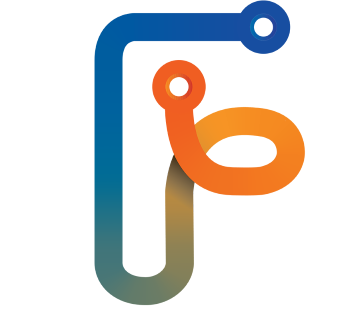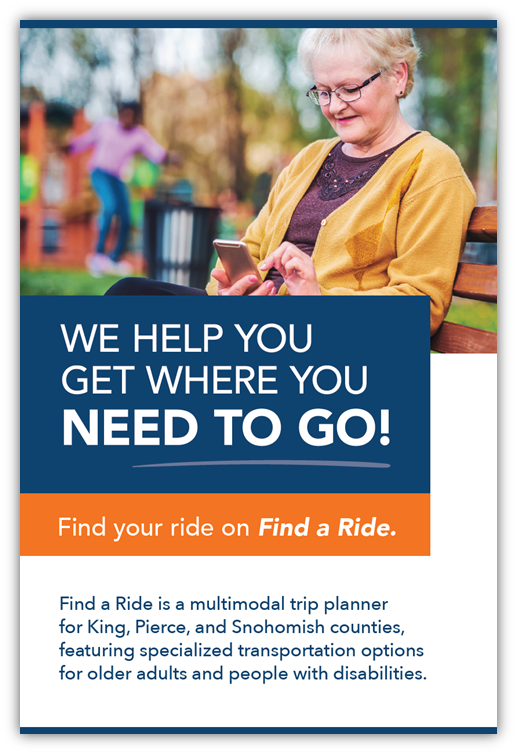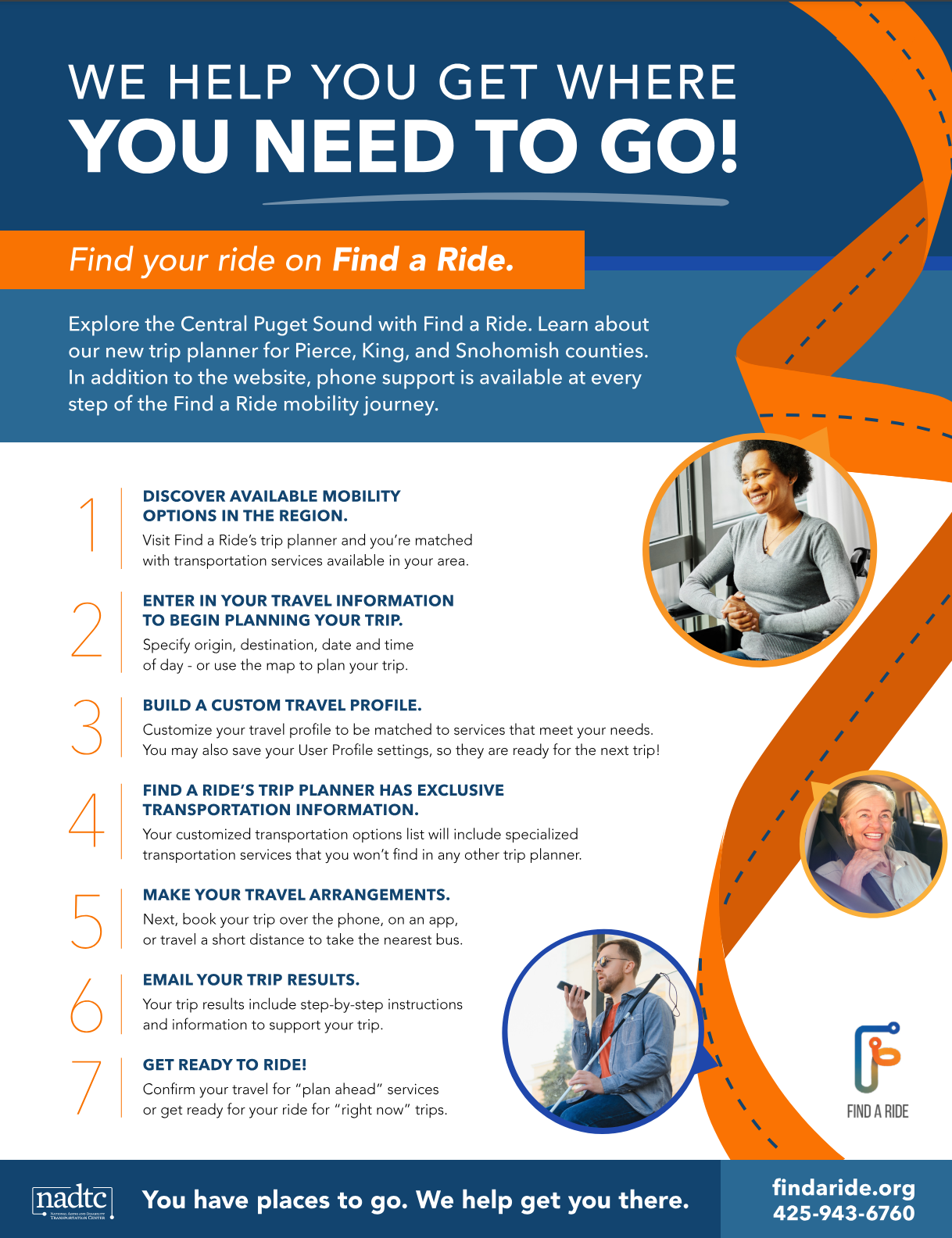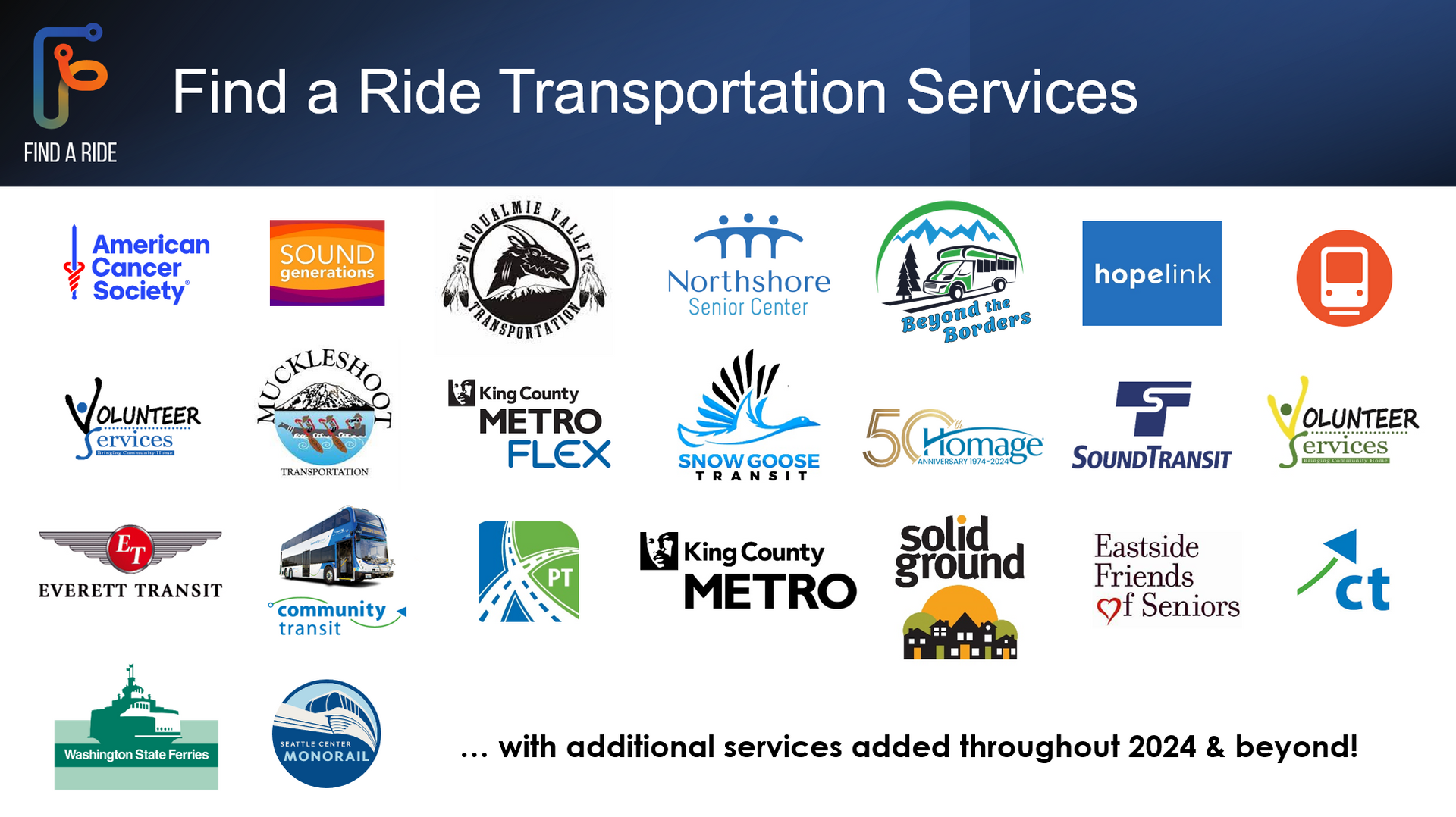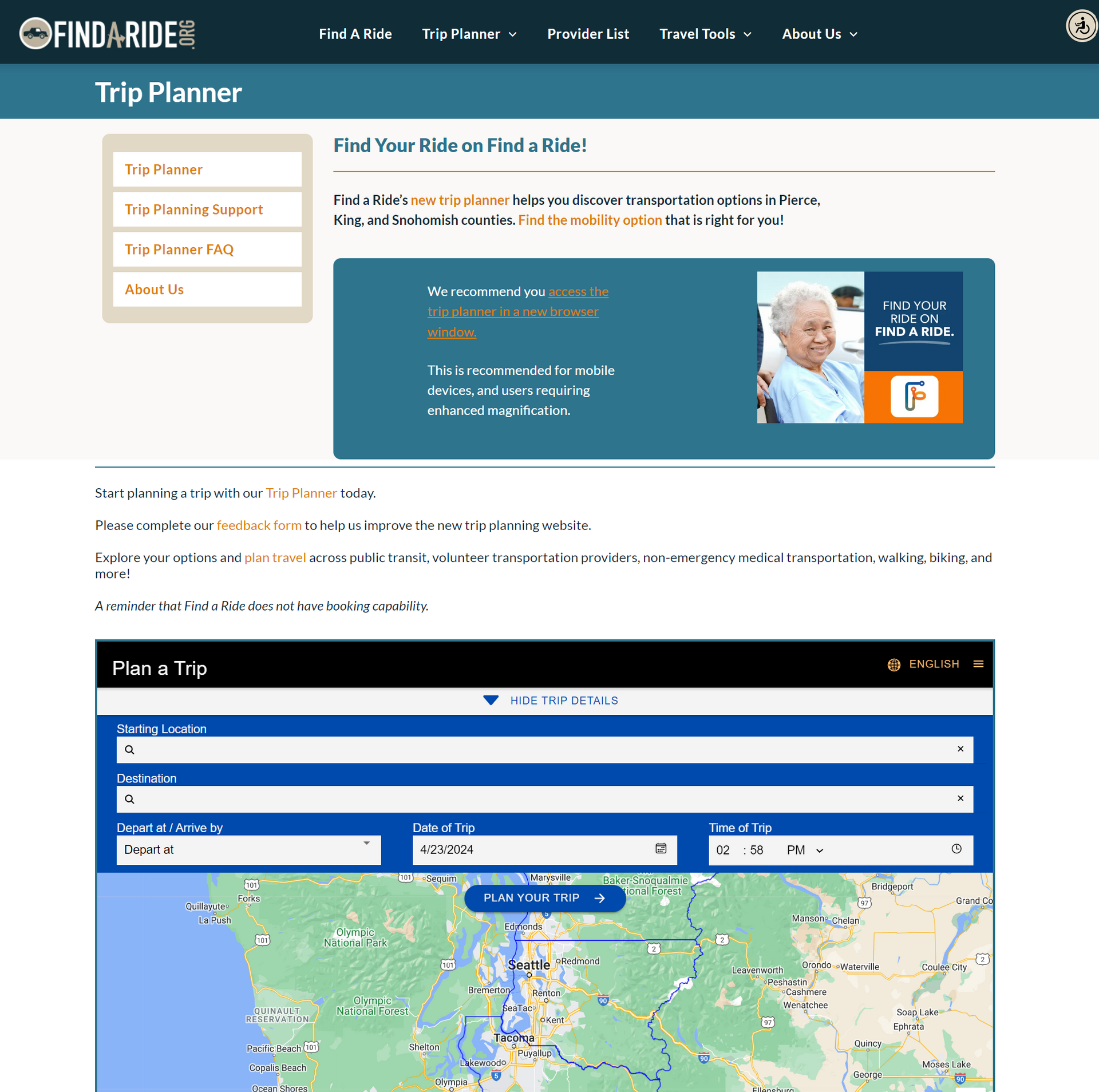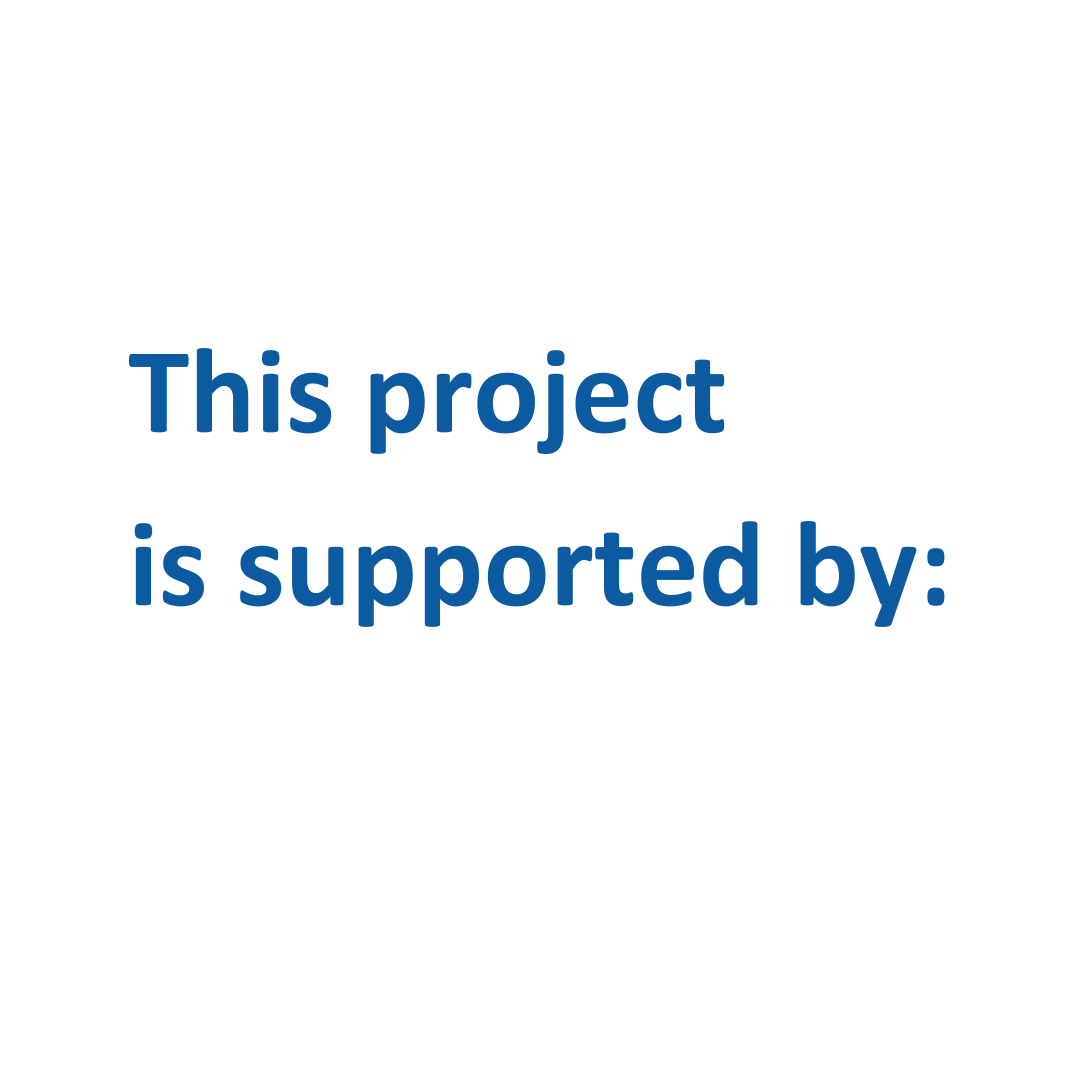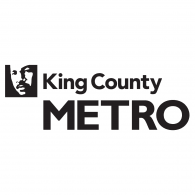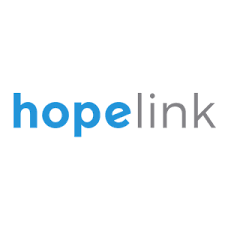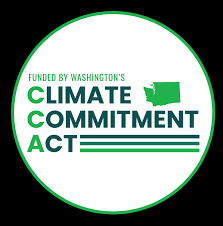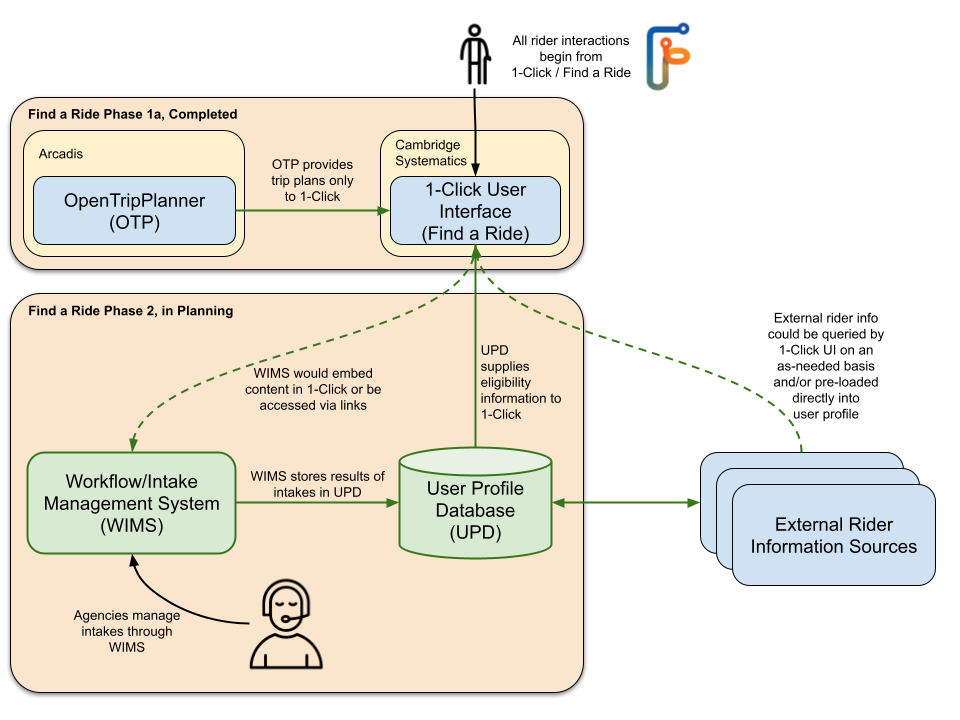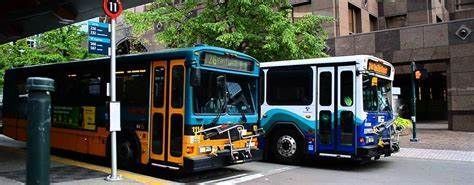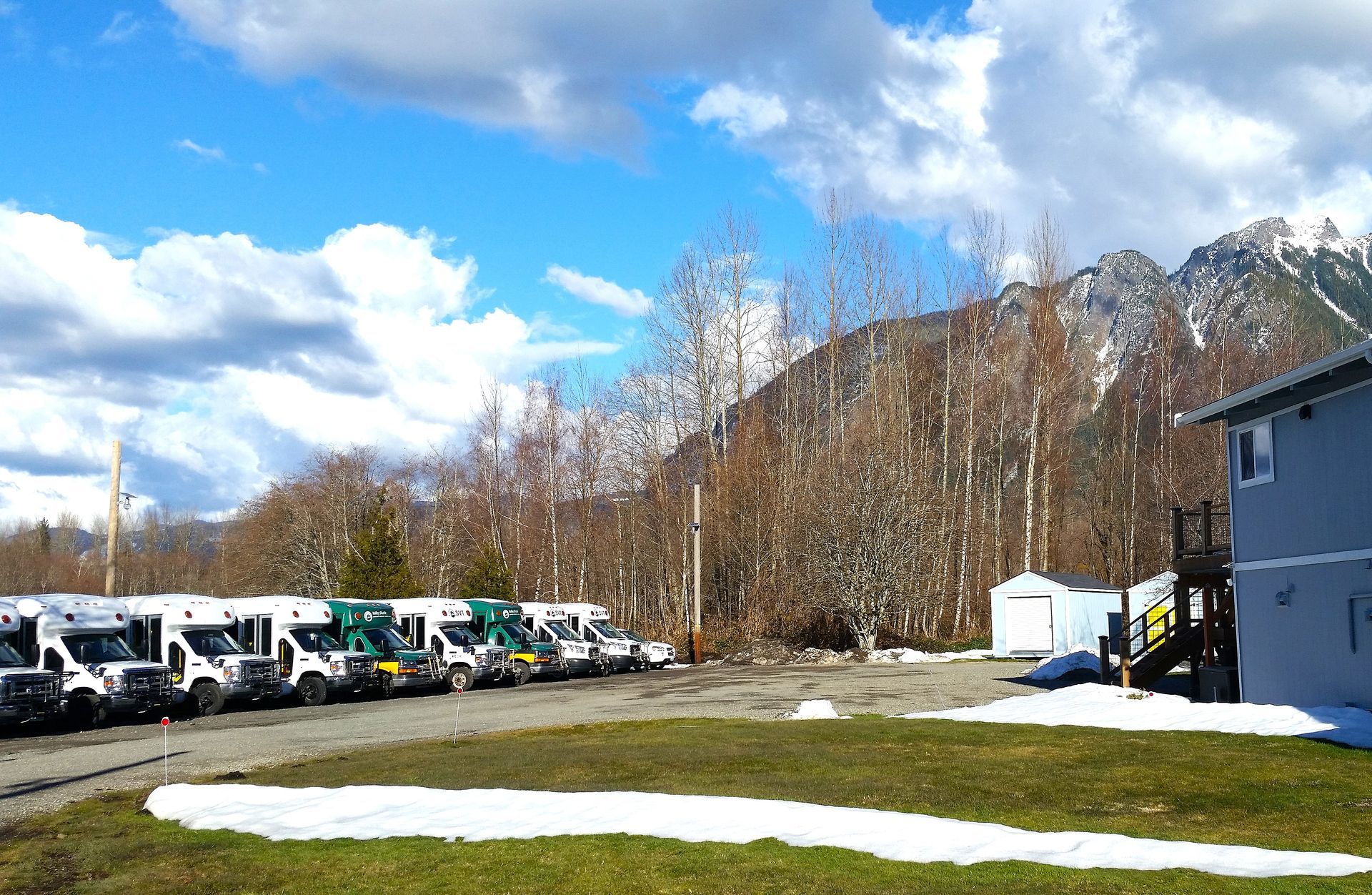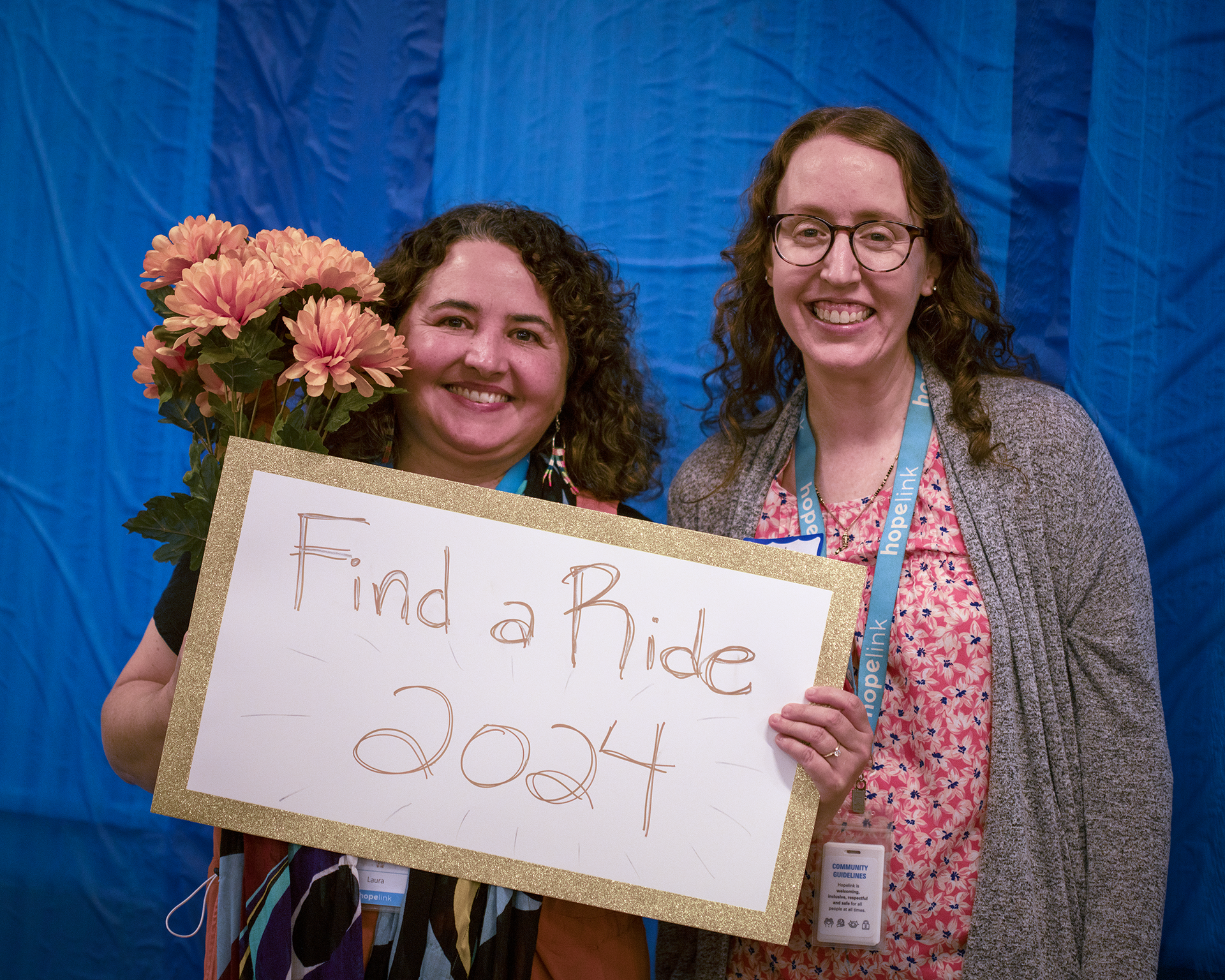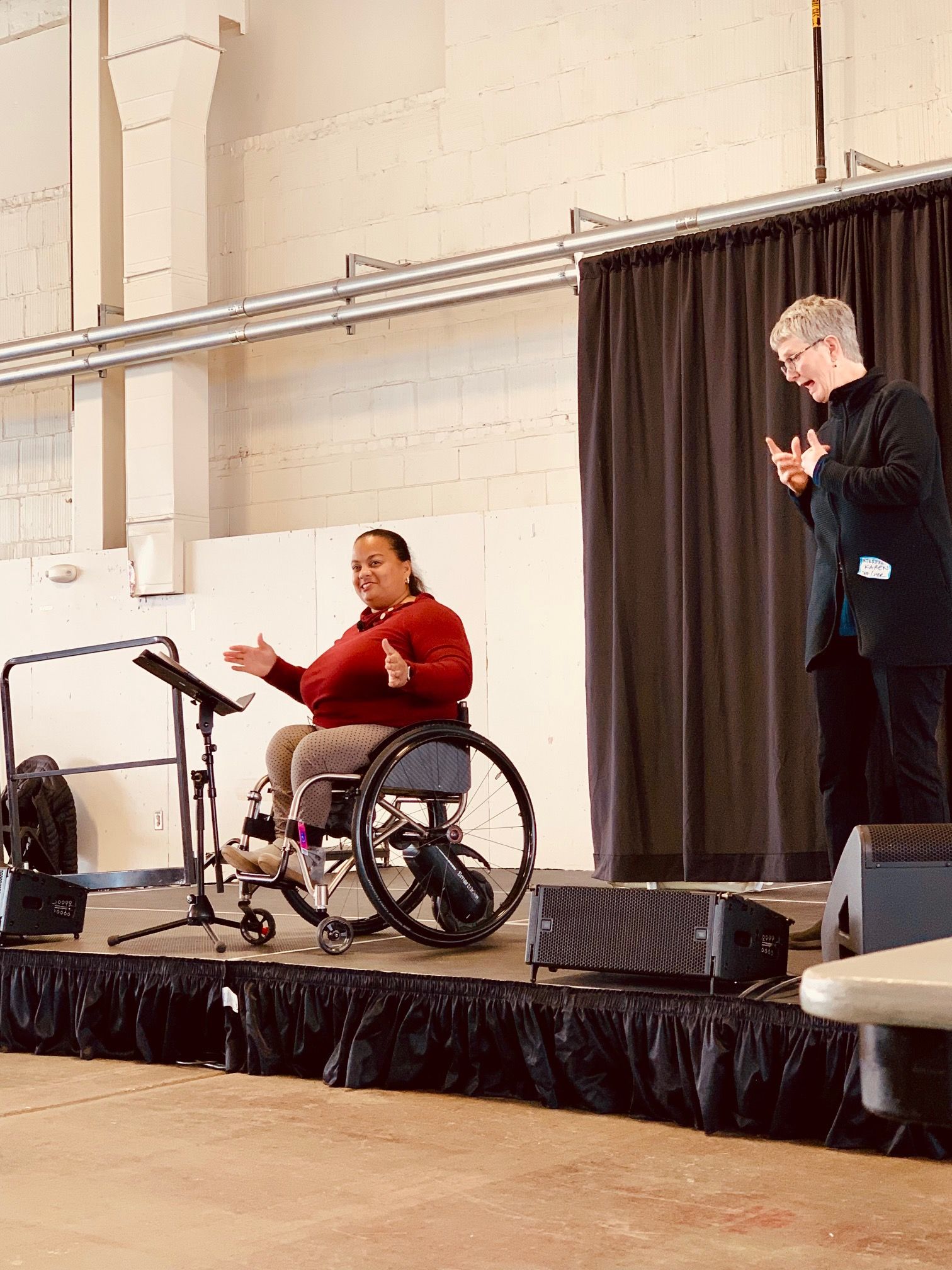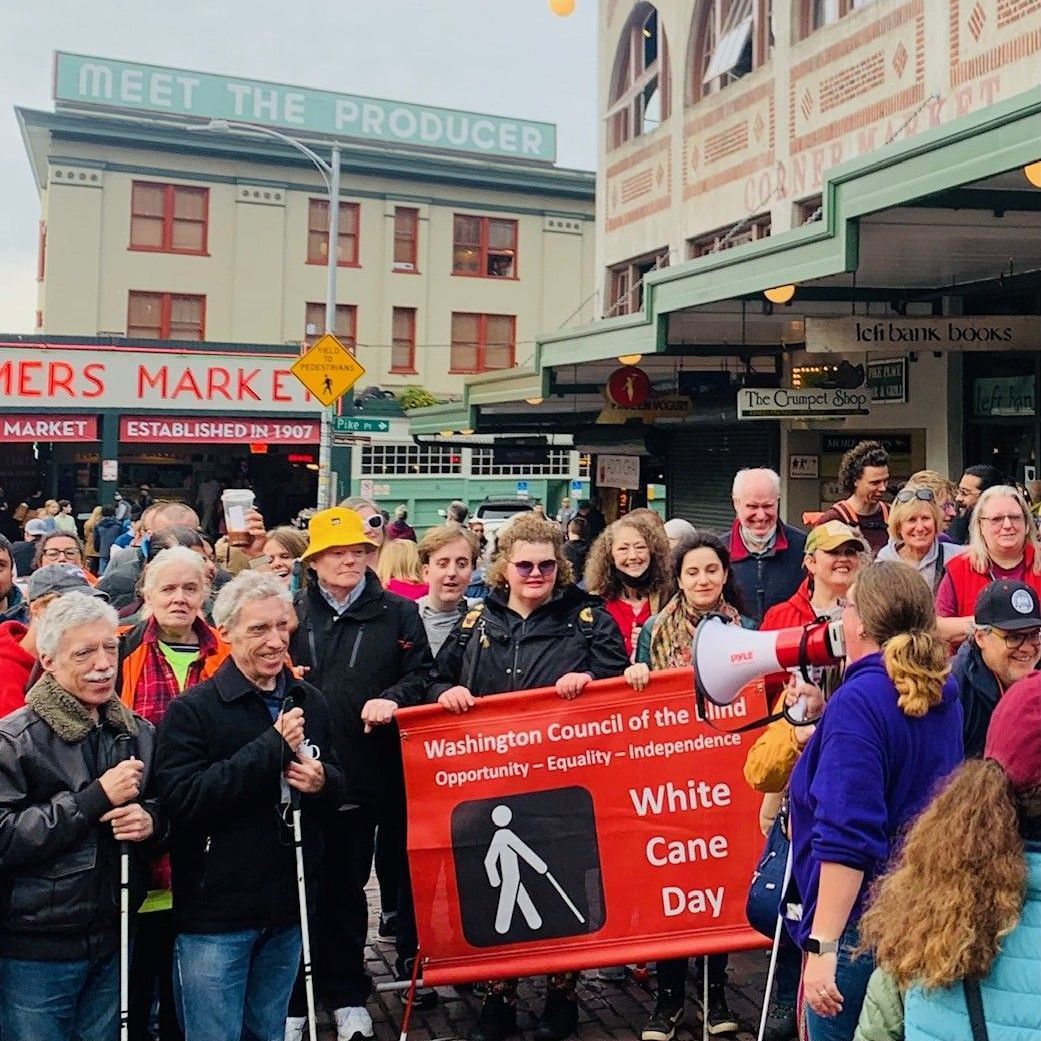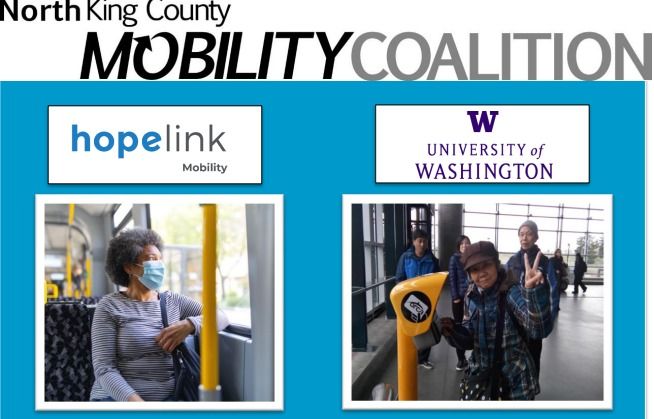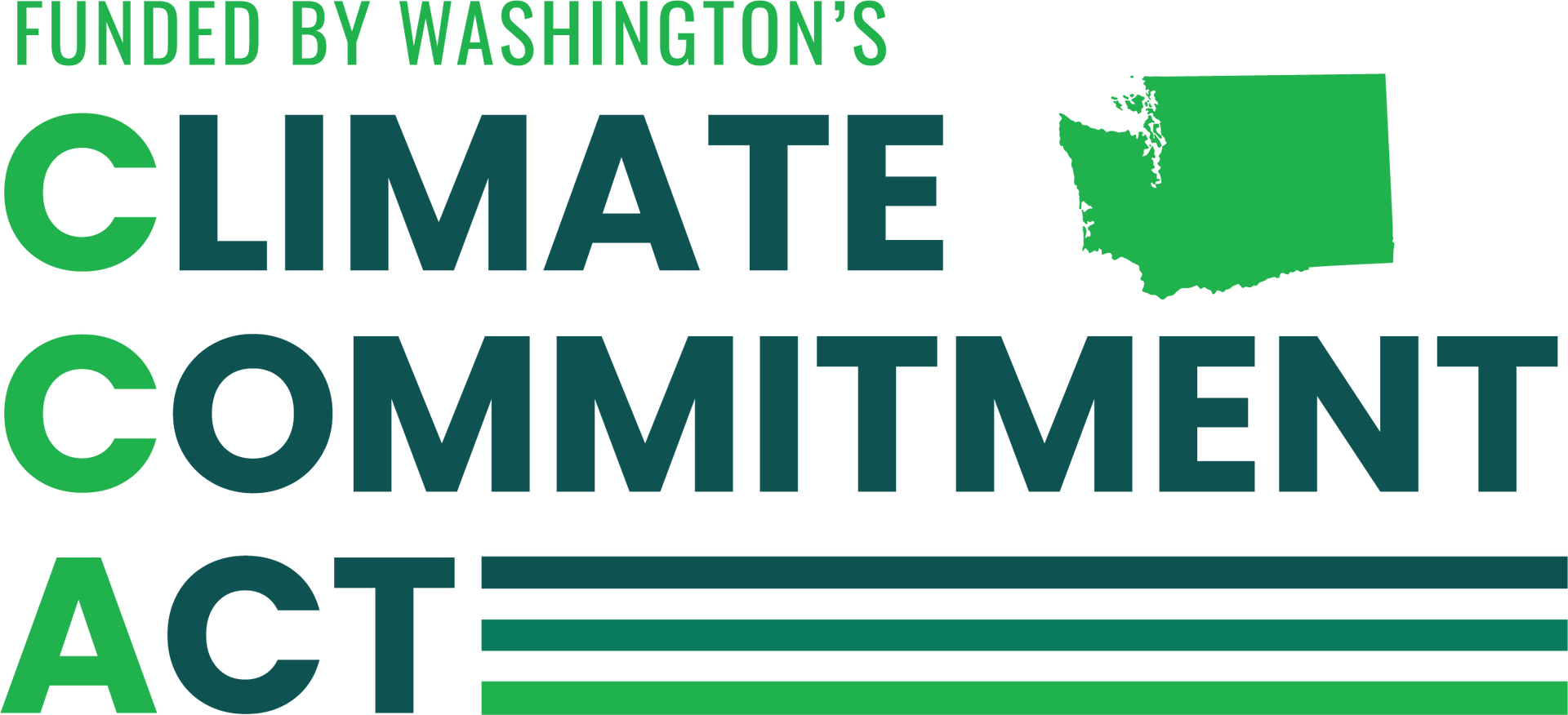Find a Ride’s Trip Planner Helps Set New Data Standard
We Help You Get Where You Need To Go
Hopelink’s Mobility Management team empowers people by increasing access to resources and community participation through transportation. This is addressed through providing travel education and resources to existing transportation options; supporting the coordination of specialized transportation by collaborating across sectors and gathering data and needs assessment to both recommend and implement improved services. Collaborations include building coalitions across cities, transportation providers, human services agencies, advocates, riders, healthcare providers, and mobility managers.
Since 2018, Hopelink has been enacting the vision of King County Mobility Coalition, and many regional partners, through a One-Call/One-Click system.
The project expanded our Find a Ride transportation service discovery site to include a ground-breaking trip planner. This is a critical step forward for our multi-phase roadmap to increase mobility access across Pierce, King, and Snohomish Counties. Our new trip planner focuses on services essential for older adults, people with disabilities, and rural transit riders. Another important project focus is ensuring accessibility for blind and low-vision travelers.
Throughout 2023, the trip planner went through two accessibility audits and several rounds of community testing. Our community testing outreach and engagement benefited from materials developed as part of a grant for the Every Ride Counts pilot project of the National Aging and Disability Transportation Center. The trip planner became available for the public in March 2024. Hopelink Mobility Management’s commitment to inclusive planning is matched by the strong participation of people with disabilities in the Coalition’s advisory committee.
Recently, the Hopelink-based project helped make history. Throughout the last two years, Hopelink staff helped the Washington State Department of Transportation create almost two dozen new data feeds. Our work helped set a new data standard called GTFS-Flex. “Flex” is an extension project for GTFS (General Transit Feed Specification). The new data standard can tell the story of volunteer transportation, Non-Emergency Medical Transportation (NEMT), Dial-A-Ride, Door-to-Door, and other critical services.
Here’s what community partners are saying about this innovative work:
Justin Deno, Sound Transit Program Manager - Passenger Facing Technology at Sound Transit
“Hopelink’s work on GTFS Flex in our region means that critical data feeds developed for Find a Ride will now be available to all trip planning tools. This aids in the discoverability of those services and allows riders to make sense of all the transit options available to them. This work could not have been accomplished without the tireless effort from the team at Hopelink and WSDOT. What started off as a local initiative to better tell the story (through data) about human services transportation has influenced the GTFS-Flex standard which will have a global impact on how trip planners make sense of non-fixed route services.”
Dr. Anat Caspi, Director of the Taskar Center for Accessible Technology
“Bringing GTFS-Flex into transit feed mainstreams allows transit agencies to elevate and broadcast their focus and priority on mobility equity. The acceptance of a standard schema is a great impetus and gateway for agencies to get their data aligned with industry standards, and their services aligned with travelers who need their services most.”
Thomas Craig, Data Analyst, WSDOT
"Hopelink’s work has been instrumental in moving forward to a new stage in a community development process more than a decade in the making. Human services transportation needs to be more visible to riders and partners, and there’s more work yet to be done, but Find a Ride has set a new bar for demand responsive transportation technology.”
Sara Sisco, Senior Manager, Education & Outreach, Hopelink Mobility
“The work that Hopelink has done to help establish the GTFS-Flex feeds will forever shape the landscape of how resilient communities access transit. The work that is being done will make it simpler for Hopelink clients to gain transportation resources and better engage with the community.”
Other projects around the country have also celebrated this historic moment. Elliot McFadden of Greater Minnesota Shared Mobility Program Coordinator at Minnesota Department of Transportation wrote: "Sometimes you have moments when you really get to see the impact of your work. As part of the MnDOT Mobility-as-a-Service project that I lead, we have implemented GTFS-Flex as a data spec to allow trip planning for flexible services like demand response, deviated route, and ADA paratransit to show up in trip planners, like our partner Transit app. GTFS-Flex has been a provisional spec until now, only used on demonstration projects and not widely adopted. As a result of our project as a demonstration of GTFS-Flex, MobilityData, the steward of GTFS, moved forward on calling a vote to adopt GTFS-Flex as an official part of the spec. Today that motion passed.” He continued “This is a big deal for the public transit industry and for rural public transit and ADA paratransit providers, giving them a pathway to finally be presented alongside fixed route transit in trip planners”.
Find a Ride's trip planner is now available to the public for our soft launch, Phase 1a. This phase focuses on educating assistor communities and organizations in King County about our new mobility tool. We encourage you to arrange a demonstration and presentation of Find a Ride for your organization. Please contact Laura Loe (she/her), Program Manager, by email or call 425-943-6760 and press 3.
Hopelink’s Mobility Management’s focus over the coming months is engaging with organizations supporting King County travelers in their mobility planning decisions. Community members are encouraged to try the new trip planner and provide feedback to support continuous improvements.
Find a Ride's service discovery website and trip planner contain transportation services across Pierce, King, and Snohomish counties. We are not currently able to book rides for travelers.
We are grateful for the companies supporting our complex software project: Trillium - An Optibus Company, Arcadis | IBI Group, Cambridge Systematics, Anthro-Tech, and Full Path Transit Technology. We are grateful for the funding support from Hopelink, Sound Transit, King County Metro, WSDOT, and the Climate Commitment Act. We appreciate the commitment to excellence and inclusive planning from our Advisory Committee Members.
Visit www.FindARide.org for more information.
Learn about Find a Ride's
multi-phase roadmap and project updates.
Mobility News
